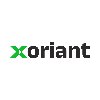Filter interviews by
Orient Technologies Interview Questions and Answers
24 Interview questions
OWASP is an open-source project focused on improving the security of software through community-driven resources and guidelines.
OWASP stands for Open Web Application Security Project.
It provides a list of the top 10 web application security risks, such as SQL Injection and Cross-Site Scripting (XSS).
OWASP offers various tools and resources, including the OWASP ZAP (Zed Attack Proxy) for security testing.
The OWASP ...
The presentation layer formats data for the application layer, ensuring proper data representation and encryption for communication.
Responsible for data translation and formatting.
Handles encryption and decryption for secure communication.
Examples include JPEG for images and ASCII for text.
Ensures compatibility between different data formats.
NAT (Network Address Translation) is a method used to modify IP address information in packet headers while in transit.
NAT allows multiple devices on a local network to share a single public IP address.
Example: A home router uses NAT to enable all connected devices to access the internet through one public IP.
NAT can enhance security by hiding internal IP addresses from external networks.
Types of NAT include Stati...
BGP attributes are properties that influence route selection in the Border Gateway Protocol, affecting how routes are advertised and chosen.
AS Path: Lists the autonomous systems a route has traversed, helping to prevent routing loops.
Next Hop: Indicates the next IP address to which packets should be sent to reach the destination.
Local Preference: Used to prefer one exit point over another within an AS, influencing...
TCP/IP is a protocol suite for networking, while OSI is a theoretical framework for understanding network communication.
TCP/IP has 4 layers: Application, Transport, Internet, and Network Interface.
OSI model has 7 layers: Application, Presentation, Session, Transport, Network, Data Link, and Physical.
TCP/IP is more widely used in real-world applications, while OSI is often used for teaching and understanding networ...
Port Channel/EtherChannel is a network technology that combines multiple physical links into a single logical link for redundancy and increased bandwidth.
Increases bandwidth by aggregating multiple links (e.g., 4 x 1 Gbps links = 4 Gbps).
Provides redundancy; if one link fails, traffic is rerouted through remaining links.
Supports load balancing across the aggregated links.
Commonly used in Cisco networking environme...
Building friendly relationships with employees enhances collaboration and creates a positive work environment.
1. Open Communication: Encourage regular check-ins and feedback sessions to foster transparency. For example, weekly team meetings can help address concerns.
2. Show Empathy: Understand employees' personal challenges and offer support. For instance, if an employee is facing a family issue, provide flexible ...
Effective management of company culture fosters collaboration, innovation, and employee satisfaction, driving overall success.
Establish clear values and mission: Ensure all employees understand the company's core values, like integrity and teamwork.
Encourage open communication: Create channels for feedback, such as regular town hall meetings or anonymous suggestion boxes.
Promote diversity and inclusion: Implement ...
AZ (Availability Zone) and Regions are key components of AWS infrastructure for high availability and fault tolerance.
Regions are geographical areas that contain multiple AZs, e.g., US East (N. Virginia).
Availability Zones are isolated locations within a region, e.g., us-east-1a, us-east-1b.
Each AZ has independent power, cooling, and physical security to ensure reliability.
Deploying applications across multiple AZ...
ALB (Application Load Balancer) routes HTTP/HTTPS traffic, while NLB (Network Load Balancer) handles TCP/UDP traffic at high performance.
ALB operates at Layer 7 (Application Layer) of the OSI model, allowing for advanced routing based on content.
NLB operates at Layer 4 (Transport Layer), making it suitable for handling millions of requests per second with low latency.
ALB supports features like host-based and path-...
Orient Technologies Interview Experiences
40 interviews found
Interview Questionnaire
5 Questions
- Q1. What is the OSI layer and explain the work of each layer.
- Ans.
OSI (Open Systems Interconnection) layer is a conceptual model that describes the communication functions of a telecommunication system.
Layer 1 (Physical Layer) - Transmits raw data bits over a communication channel.
Layer 2 (Data Link Layer) - Provides error-free transfer of data frames between nodes over the physical layer.
Layer 3 (Network Layer) - Provides logical addressing and routing of data packets between nodes ...
- Q2. What is VLAN ?
- Ans.
VLAN stands for Virtual Local Area Network. It is a logical grouping of devices on a network based on their function, project, or application.
VLANs allow network administrators to segment a network into smaller, more manageable groups.
Each VLAN has its own broadcast domain, which means that broadcasts are contained within the VLAN and do not spread to other VLANs.
VLANs can be configured to span multiple switches, allow...
- Q3. What is the difference between L2 and L3 layer?
- Ans.
L2 is data link layer responsible for MAC addressing and error detection, while L3 is network layer responsible for IP addressing and routing.
L2 operates on MAC addresses while L3 operates on IP addresses
L2 is responsible for error detection and correction while L3 is responsible for routing
L2 switches packets within a network while L3 routes packets between networks
Examples of L2 devices include switches and bridges w...
- Q4. What is router?
- Ans.
A router is a networking device that forwards data packets between computer networks.
Routers operate at the network layer of the OSI model.
They use routing tables to determine the best path for data to travel.
Routers can connect different types of networks, such as LANs and WANs.
Examples of routers include Cisco, Juniper, and TP-Link.
Routers can provide security features such as firewalls and VPNs.
- Q5. What is subnetting ?
- Ans.
Subnetting is the process of dividing a network into smaller subnetworks.
Subnetting helps in efficient utilization of IP addresses.
It improves network performance and security.
Subnetting is done by borrowing bits from the host portion of an IP address.
CIDR notation is used to represent subnet masks.
Example: 192.168.1.0/24 represents a network with 256 IP addresses.
Skills evaluated in this interview
- Q1. Tell me about yourself," I would like to highlight both my professional and personal journey. I am a highly motivated and detail-oriented individual with a strong academic background and relevant work expe...
- Q2. I am passionate about continuous learning and growth, which has led me to take on various challenges and responsibilities in my previous roles. I consider myself a team player who can also work independent...
- Q3. As for why I should be hired, I believe my combination of skills, experience, and work ethic makes me a strong candidate. I bring not only technical knowledge but also problem-solving ability, adaptability...
- Q4. Regarding my strengths and weaknesses, one of my key strengths is effective communication. I can convey ideas clearly and collaborate well with others. I am also highly organized and dependable. On the oth...
I applied via Walk-in and was interviewed in Jul 2024. There was 1 interview round.
(2 Questions)
- Q1. Explained yourself
- Q2. Power Bi related question like Cardinality in Data Modelling , Some scenario based questions
Interview Preparation Tips
Totally horrible experience.
I was given time 3 pm and my interview started @5:45 PM ,waited me long.
The interviewer Ritika is too rude and egotistical.
She welcomes you with smile, but she is totally unprofessional. In interview she will try to find you in trap and then break your confidence in such a way that you can’t explain even if you know the things. She didn’t allow you complete your answer and starts another question. It was like it has been 5:50 let’s complete interview and go home .
I try to simplify the solution but she is like my HR can do it if problem is as simple.
I travelled from Thane to Andheri for face to face interview but I listen from HR assistant that he(me)is optional candidate.
They took me granted as optional candidate.
Totally waste of time.
I advise don’t go for face to face interview as they don’t care about candidates.
I have advice for Ritika, if you don’t like candidates reject hime in professional manner that he can be confident for next interview.
(2 Questions)
- Q1. What is ALB and NLB difference
- Ans.
ALB (Application Load Balancer) routes HTTP/HTTPS traffic, while NLB (Network Load Balancer) handles TCP/UDP traffic at high performance.
ALB operates at Layer 7 (Application Layer) of the OSI model, allowing for advanced routing based on content.
NLB operates at Layer 4 (Transport Layer), making it suitable for handling millions of requests per second with low latency.
ALB supports features like host-based and path-based...
- Q2. What is AZ and Regions
- Ans.
AZ (Availability Zone) and Regions are key components of AWS infrastructure for high availability and fault tolerance.
Regions are geographical areas that contain multiple AZs, e.g., US East (N. Virginia).
Availability Zones are isolated locations within a region, e.g., us-east-1a, us-east-1b.
Each AZ has independent power, cooling, and physical security to ensure reliability.
Deploying applications across multiple AZs enh...
Skills evaluated in this interview
- Q1. Could you provide details about your previous work experience?
- Q2. About skills and experience
I appeared for an interview in Apr 2025, where I was asked the following questions.
- Q1. What is owasp
- Ans.
OWASP is an open-source project focused on improving the security of software through community-driven resources and guidelines.
OWASP stands for Open Web Application Security Project.
It provides a list of the top 10 web application security risks, such as SQL Injection and Cross-Site Scripting (XSS).
OWASP offers various tools and resources, including the OWASP ZAP (Zed Attack Proxy) for security testing.
The OWASP Found...
- Q2. What is presentation layer
- Ans.
The presentation layer formats data for the application layer, ensuring proper data representation and encryption for communication.
Responsible for data translation and formatting.
Handles encryption and decryption for secure communication.
Examples include JPEG for images and ASCII for text.
Ensures compatibility between different data formats.
(2 Questions)
- Q1. Interduce your self in brief ?
- Ans.
I am a software developer with 5 years of experience in Java, Python, and SQL.
5 years of experience in Java, Python, and SQL
Strong problem-solving skills
Experience working in Agile development environment
- Q2. Tell me something about your project ?
- Ans.
I developed a web application for managing inventory and sales for a retail store.
Used React.js for front-end development
Implemented Node.js for back-end functionality
Utilized MongoDB for database management
I appeared for an interview in Dec 2024.
(2 Questions)
- Q1. What is your life gole?
- Ans.
My life goal is to continuously learn and grow, both personally and professionally, while making a positive impact on others.
Constantly seeking new challenges and opportunities for growth
Striving to make a difference in the lives of those around me
Setting and achieving meaningful goals
Building strong relationships and networks
Contributing to the success of the organization I work for
- Q2. What is your strength
- Ans.
My greatest strength is my attention to detail and ability to analyze complex financial data.
Strong analytical skills
Attention to detail
Ability to work with complex financial data
Problem-solving skills
Experience in financial analysis and reporting
Assignment 20 Marks in 10 Min
(1 Question)
- Q1. Technologies question
(2 Questions)
- Q1. Technical questions related network.
- Q2. Technical questions related firewall.
Interview Preparation Tips
But for high budget they don't have that much budget. So, they start diverting.
- Q1. Explain basics network architecture of your organization
- Q2. Explain SD WAN technology
- Q3. Explain BGP attributes
- Q1. What is cybersecurity?
- Q2. Why cyber security is important for organisation?
Top trending discussions






Orient Technologies Interview FAQs
Some of the top questions asked at the Orient Technologies interview -
The duration of Orient Technologies interview process can vary, but typically it takes about less than 2 weeks to complete.
Tell us how to improve this page.
Orient Technologies Interviews By Designations
- Orient Technologies Network Security Engineer Interview Questions
- Orient Technologies Network Engineer Interview Questions
- Orient Technologies Enterprise Support Engineer Interview Questions
- Orient Technologies Power BI Developer Interview Questions
- Orient Technologies Technical Support Engineer Interview Questions
- Orient Technologies Senior Associate Interview Questions
- Orient Technologies Customer Support Engineer/Technician Interview Questions
- Orient Technologies Senior Business Development Manager Interview Questions
- Show more
Interview Questions for Popular Designations
- Network Engineer Interview Questions
- Network Security Engineer Interview Questions
- Associate Interview Questions
- Analyst Interview Questions
- Team Lead Interview Questions
- Senior Associate Interview Questions
- Associate Software Engineer Interview Questions
- Assistant Manager Interview Questions
- Show more
Overall Interview Experience Rating
based on 46 interview experiences
Difficulty level
Duration
Interview Questions from Similar Companies
Orient Technologies Reviews and Ratings
based on 590 reviews
Rating in categories
5-7 Yrs
Not Disclosed
7-8 Yrs
Not Disclosed
|
Desktop Support Engineer
229
salaries
| ₹1.6 L/yr - ₹4.5 L/yr |
|
Network Engineer
150
salaries
| ₹1.7 L/yr - ₹7.9 L/yr |
|
Network Support Engineer
143
salaries
| ₹0.9 L/yr - ₹6 L/yr |
|
Technical Support Engineer
82
salaries
| ₹2 L/yr - ₹5.1 L/yr |
|
System Administrator
77
salaries
| ₹3.3 L/yr - ₹7.5 L/yr |

ITC Infotech

CMS IT Services

KocharTech

Xoriant
- Home >
- Interviews >
- Orient Technologies Interview Questions















